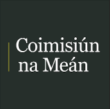The Animation CEO Forum, an Animation Ireland body that brings together CEOs from the leading Irish animation companies to discuss industry issues, has criticised Irish public broadcaster RTÉ saying they are failing to support, develop and fund the Animation sector in Ireland.
To back up their argument the Forum members have illustrated that, in the context of the two Academy Award nominations received this month by Irish animation studios “RTÉ have spent just €300,000 a year for the past three years on animated programmes,” a figure that represents less than 1% of the RTÉ spend on independent commissioned programmes, according to the report.
“As a Public Service Broadcaster RTÉ’s remit is to produce children’s programmes just as they commission Drama and Documentaries,” says Cathal Gaffney, Managing Director of Brown Bag Films the production company behind the Oscar nominated ‘Granny O’Grimm’. “Irish children have as much right to quality home produced programmes as their parents do.” He continues “However, the RTÉ schedule is almost entirely full of imported animation from the US and Europe. Unless there is a change in RTÉ’s policy, Irish children will learn to speak with an American accents and can expect to see American-style yellow school buses for a long time to come.”
“Who knows what success the Animation sector could achieve if RTÉ were to commit just 5% of its programming budget towards animation. Ultimately, Irish children would be the real beneficiary as they watch quality home produced programmes relevant to an Irish audience and to their lives,” he concludes.
In the same release Monster Animation’s Managing Director, Gerard O’Rouke states, “RTÉ need to wake up and become strategic about animation programmes for their schedule, the rest of the world has identified the talent and potential in our sector in Ireland.
“We have a great opportunity to replace acquired programming with indigenous programmes that will be more relevant to an Irish audience. What we are lacking is a vision at the very top in RTE and as a result 25% of the Irish population are being ignored. This is simply not good enough.
“There is little advertising revenue to be earned by RTÉ from children’s programmes and their lack of support for animation would indicate that RTÉ’s policy is more about chasing commercial revenues than their Public Service remit,” he concluded.
In the same statement the Animation CEO Forum says it believes that the animation sector is a shining light of Ireland’s Smart and Creative economy giving the example that “the animation sector is almost entirely export focused and is the largest full time employer of the entire Film and Television sector. Without much domestic support, Irish Animation studios successfully export their work internationally and the irony is that animated programmes created in Ireland are broadcast on almost every children’s channel around the world.”
Damien Farrell, Chairman of the Animation CEO Forum and creative director at animation house, Caboom, explores this point further, stating: “Animation provides exactly the type of high-value, technically-skilled, stable employment that Ireland needs to build its ‘Knowledge Economy’. That the Animation Industry has not only survived but grown exponentially is a testament to its members’ creativity, business acumen and drive.”
The Animation CEO Forum also highlights how thrilled it is with the recent Irish Oscar nominations and congratulated Nicky Phelan and Darragh O’Connell from Brown Bag Films and Tomm Moore from Cartoon Saloon who have been nominated in the Best Animated Short and Best Animated Feature categories respectively. Tomm Moore has since told IFTN that both he and Paul are very much in agreement with the sentiments expressed in the Forum’s release.
In response to the release a statement from RTÉ says that the broadcaster is “delighted to congratulate all five nominees in this year's Oscars and is particularly proud that RTÉ substantially supported three of those nominees: ‘Granny O'Grimm's Sleeping Beauty’ (alongside The Arts Council and BSÉ/IFB via the FRAMEWORKS scheme); ‘The Door’ (Shortcuts Scheme alongside BSE/IFB) and ‘The Secret Of Kells’ (supported as a substantial 'enhanced acquisition').”
The broadcaster continued with a description of its current promotion of animation across Young People's programming, Drama, Entertainment and Acquisitions. “As a genre, animation is extremely expensive and labour-intensive to make and the experience across Europe is that large scale animation series are co-funded,” the statement goes on to say, before adding “RTÉ is happy to commit to an ongoing investment and input into this co-funded model. RTÉ committed €2.864million on animated programming between 2005 and 2009. This RTÉ funding helped Irish producers unlock total funding for these projects worth €17.416 million.” Where RTÉ investment in commissioned animated projects is concerned, this figure does not include spend on acquired Irish animated programming.
The statement continues by noting that animation is a genre with a particular resonance for young viewers and that this is recognised by RTÉ’s commissioning of various projects such as ‘Fluffy Gardens’, ‘Fado Fado’, ‘Grabby Bag’, ‘Picme’ and ‘Ballybraddan’ amongst others. It furthermore states that “Ongoing support is being given to the development of projects for 2010 and 2011. RTÉ YPP department works closely with animators/ production companies - in some cases supporting them for funding and in others commissioning the entire series. RTÉ provides development and/or production funding as well as expertise and support at international funding conferences.”
“The Irish animation sector has been punching well above its weight internationally for some time and these nominations are a testament to its creativity and professionalism,” said the Animation Forum’s Damien Farrell, before concluding that: “This success is a boost to the Animation sector, and it comes despite the lack of funding to the sector from RTÉ.”
Also giving his reaction, Steve Carson, Director of Programmes for RTÉ Television, stated: "While we understand animators’ appetite and ambition to maximise funding for their genre, as a public service broadcaster RTÉ’s responsibility is to commission, support and broadcast a balanced mixed schedule of programming targeted at different age groups. So resources must be targeted appropriately across all genres.”
He continues by describing that in 2009 RTÉ, 813 hours of indigenous programming was delivered to young viewers by RTÉ’s Young People’s department which saw an increase of 16 hours from the previous year and further comments that “projections for 2010 are for similar levels.” Carson explains that despite this “international experience, as well as domestic research, points to the fact that children are attracted to and will choose to watch programming they recognise. RTÉ operates in a multi-channel environment, where almost 90% of the audience receive digital television. With numerous children’s channels available on NTL/Chorus and Sky, young people in Ireland are exposed to an enormous international choice.”
Carson concludes by saying: "90% of the audience receive more than the main Irish channels – many households have hundreds of channels to choose from. Despite this, RTÉ continues to be the leading player in children’s television in Ireland and, one in five children watching television in Ireland are watching RTÉ. This proportion is unique across the European Broadcasting Union (EBU) in the share of young people’s audience attracted to a public service broadcaster. RTÉ Young People’s department aims to make The Den the first experience that Irish youngsters have of television thus making RTÉ relevant to their lives. Resources however are finite. Commercial revenue has been very challenged in the past year and the 2009 broadcasting bill has increased the Sound & Vision Fund to 7% of licence fee income. To adopt the approach suggested by the animation sector - to devote a fixed proportion of programme budgets solely to their work - would impact on the funding available for other public service programming, such as documentaries, diversity, Irish language, education and religious programmes, and even other types of content for young people."
 |






